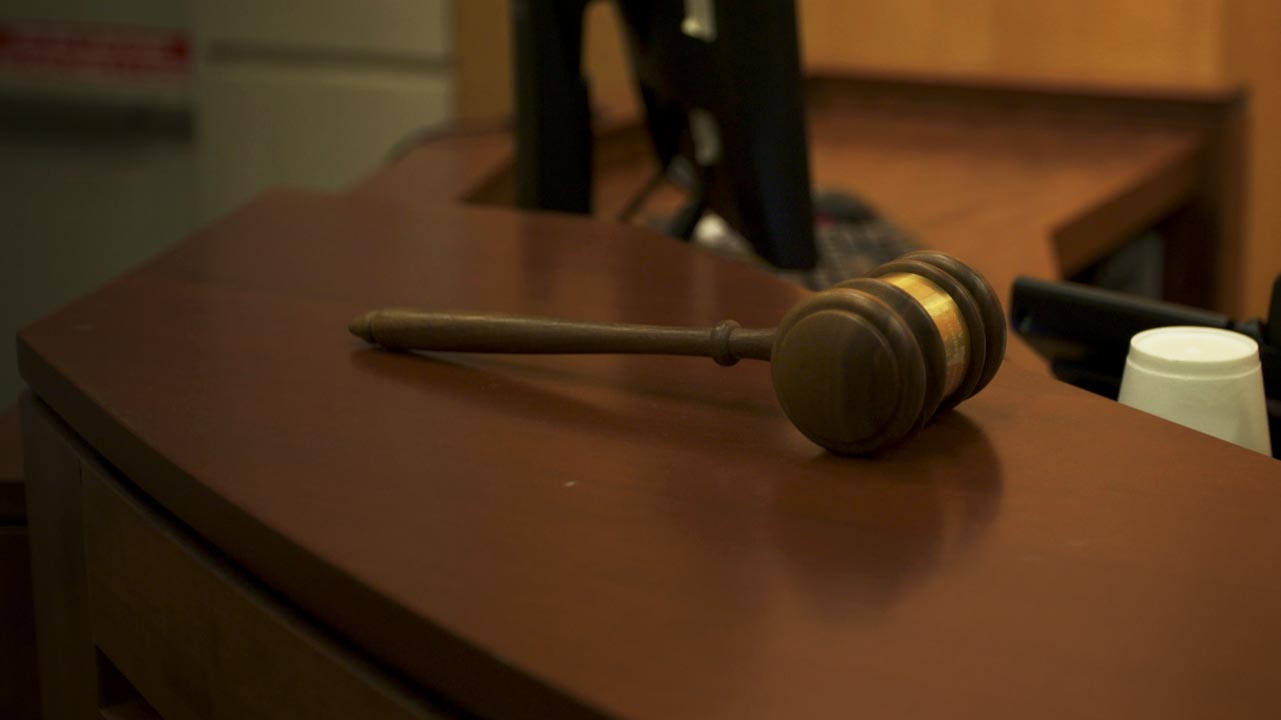 A file image of a judge's gavel in a courtroom at the U.S. District Court for the District of Arizona.
A file image of a judge's gavel in a courtroom at the U.S. District Court for the District of Arizona.
About 2 million cases are pending in immigration court today, 18,000 of which are in Arizona. A new report offers recommendations on addressing the backlog.
Muzaffar Chishti with the Migration Policy Institute says that this level of backlog in immigration courts is a new phenomenon, created in part by the increase in asylum cases and influx of people at the border due to economic and political crises in the Americas.
Today, 40% of all immigration cases are asylum claims, which are more complex and take longer to resolve. Chishti says currently it can take up to four years just to get the first hearing.
In Tucson there is a backlog of 1,500 cases in immigration court, according to Transactional Records Access Clearinghouse, a nonprofit data gathering organization at Syracuse University.
“Long times to resolution means two things,” he says. “First is that those who are actually eligible for the protection of asylum are deprived of that for a long time. And those who do not meet the test are not really removed because by the time the removal order happens they have had long, deep roots in the community where their removal becomes very difficult.”
The new report by the Migration Policy Institute recommends a number of measures to fix what they’re calling a “court system in crisis.”
The measures include strengthening the court’s efficiency by: temporarily processing new cases first, terminating low-priority cases that don’t meet a certain criteria, having ICE attorneys as the central case referral agency, establishing two tiers of immigration judges to separate procedural matters from in depth case assessments, and assigning specialized dockets to judges with expertise on specific issues.
Other measures in the report include: using more remote hearings when parties are unable to attend in person such as detained immigrants and vulnerable populations like children, scaling up access to legal representation, and restarting the asylum officer rule’s streamlined appeal proceedings.
“We do believe that that will lend efficiency for the treatment of new asylum cases and will get those cases resolved faster, and that will bring less and less cases into the immigration court system,” Chishti says.

By submitting your comments, you hereby give AZPM the right to post your comments and potentially use them in any other form of media operated by this institution.